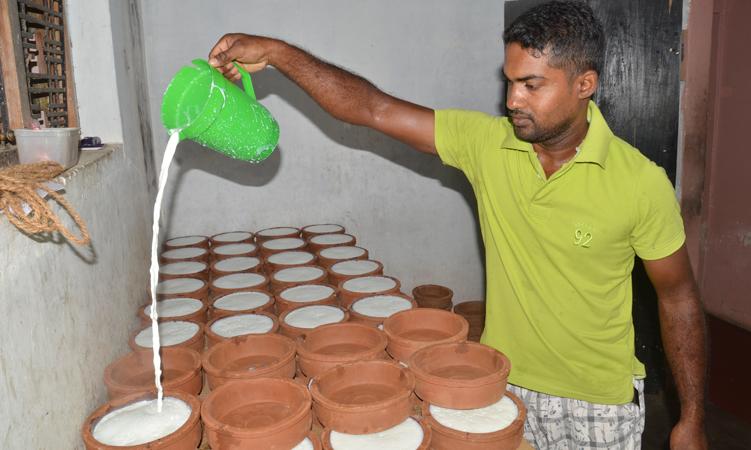
The much anticipated national policy for social enterprise development is taking shape with discussions on the policy being held with the key stakeholders of the sector, Lanka Social Ventures (LSV) Managing Director and CEO Dr. Lalith Welamedage told journalists at a media briefing on the second International Conference on Social Enterprises and Social Finance in Colombo last week.
Social Traders Australia, CEO, David Brookes, founder of the Foundation Goodness, Lanka Impact Investing Network Chairman Chandula Abeywickrema, Tristan Ace of British Council and World Fair Trade Organisation CEO Erinch Sahan will attend the conference on January 28 and 29 at the Water’s Edge Hotel on the theme ‘Think social, produce social and buy social’.
Building a social enterprise ecosystem and helping social enterprises and SMEs to scale up and create impact, exploring new markets for social goods and services at local and global level, harnessing public, private and philanthropic investments to create social impact are some of the areas that will be covered at the seminar.
A team comprising members of Lanka Social Ventures, the British Council, Science and Technology Ministry, Industry and Commerce Ministry, Finance Ministry and the President’s Office are working on the national policy, according to Dr. Welamedage.
“A national policy for social enterprise development will be a fulfillment of a long-felt need to build a vibrant social enterprise sector that would not only help address social and environmental issues but also support economic growth with benefits to the rural sector of the country,” he said.
The term ‘Social enterprise’ is relatively new to Sri Lanka and has failed to attract much research interest. However, there has been a noteworthy improvement of academic research on cooperatives, farmer and producer companies and the small and medium enterprises in the country.
A research study commissioned by Oxfam with IIX Shujog is the only comprehensive study on social enterprises in Sri Lanka.
A key finding of a study by Lanka Social Ventures in collaboration with the British Council is access to finance which is the main barrier facing social enterprises. Many social enterprises operate with low profit margins and do not posses bankable assets which make obtaining finances a challenge.
The most common financial constrain is the high interest rate or the cost of capital with guarantors to obtain loans. Collaterals with terms and conditions make access to funding a hurdle which social entrepreneurs cannot easily overcome.
“We believe that the national policy will address these issues helping social entrepreneurs to grow and contribute to social, environmental and economic development in the country,” Dr. Welamedage said.
The study revealed that of around 11,000 social enterprises in the country, around 13 percent are creative industries with a history of over 100 years.
The findings revealed a high level of youth involvement and youth leadership in social enterprises in the country. Fifty-one percent of the enterprises launched after 2000 were founded or led by people aged 25-44 which is significant in light of the widespread criticism of lack of youth entrepreneurs.
The study found a higher proportion of female leaders in the social enterprise sector than mainstream businesses in the country. The study notes that while a majority of traditional enterprises are still led by male entrepreneurs, social enterprises become an important outlet for female entrepreneurs.
The survey also bring to light that social enterprises tend to be clustered in the Western and Central Province mainly due to the availability of facilities and access to support services and networks in the two provinces.
Almost half of the enterprises reported a turnover of less than Rs. 1 million. A low percentage generates a turnover exceeding Rs. 10 million.
The Building Enterprises for Sustainable Economies project of LSV funded by the British Council is based on the study on social enterprises in the country.
Social enterprises differ from traditional and responsible enterprises due to its focus on addressing social and environmental issues and ploughing back a share of the profit to the enterprise.
Founder of Grameen Bank Bangladesh Mohammad Unus, Founder of International Slow Food Movement to counter the spread of fast foods in Italy, Carlo Petrini and Founder of the Sarvodaya Movement in Sri Lank, A.T Ariyaratne are some of the well known social entrepreneurs.
The Earth Bound Creation founded by an entrepreneur in Kandy which turns around two tones of used paper to manufacture pencils and a range of products and a Sri Lankan entrepreneur operating six food outlets to cater to Sri Lankan migrants to Australia have been recognised as contemporary social entrepreneurs who have addressed social and environmental needs through their enterprises.
